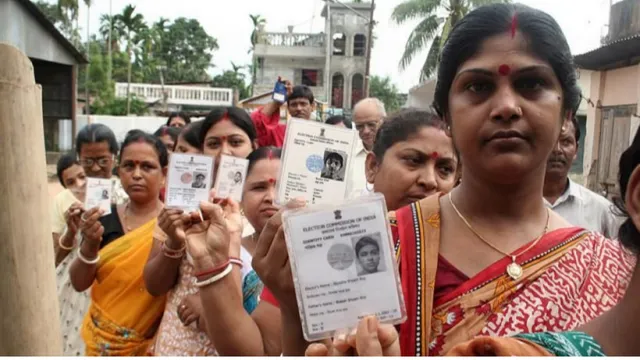The ongoing Special Intensive Revision (SIR) of the voter lists in Bihar has been contentious, with the Election Commission of India (ECI) standing firm on its process in the Supreme Court against opposition party allegations. The biggest news is the ECI clarification that Aadhaar, Voter ID (EPIC), and ration cards cannot be used as sole proof of citizenship for inclusion in the revised voter rolls.
The ECI, in a detailed affidavit made before the Supreme Court, asserted its constitutional right to conduct such exercises in order to ensure the purity and integrity of electoral rolls. It went on to specifically clarify that although Aadhaar is undoubtedly a valid identity document and a beneficial tool for many government services, it does not declare a person to be a citizen, the bare minimum required for the right to vote under Article 326 of the Constitution. Similarly, the Commission clarified that the Voter IDs provided were considered to be “by-products of earlier electoral rolls” and hence insufficient for a blanket de-novo verification. The presence of spurious ration cards in large quantities also led to rejection as genuine documents.
DON'T MISS
Opposition Flags Disenfranchisement Fears
Opposition parties, civil society groups, and NGOs also condemned in serious terms the SIR exercise, accusing it of being a surreptitious “citizenship screening” exercise. They believe that it is going to disenfranchise actual voters, especially those belonging to marginalized groups, arbitrarily, daily, migrant workers, and daily wage earners who might encounter severe impediments in providing some additional documents under the new system. They accuse such stringent requirements of disenfranchising actual citizens on a mass scale.
EC Assures No Loss of Citizenship
However, the Election Commission has particularly allayed these apprehensions, providing an extremely valuable assurance to the Supreme Court. The EC has categorically stated that the citizenship of an individual will not be withdrawn automatically just because they are rendered ineligible for registration in the electoral rolls via the SIR exercise.
The Commission reiterated that the revision is merely to enroll everyone qualified to vote and to de-enroll those who are not qualified, thereby enhancing the integrity and credibility of the electoral database and the democratic process.
News reports indicate that despite the controversies, over 90% of the electors have already submitted their enumeration forms, which is a testimony to high public engagement in the revision exercise. The ECI claims that this exercise is necessary to restore public confidence in the electoral process, prevent foreign nationals from being enrolled, and eliminate duplicate or deceased entries in the voters\’ rolls.
The Supreme Court continues hearing petitions challenging the legality and conduct of the Bihar voter list revision, the proceedings of whose outcome will most likely be determinative in shaping the future of electoral roll administration in the state and also possibly set precedents for future revisions in the country.
